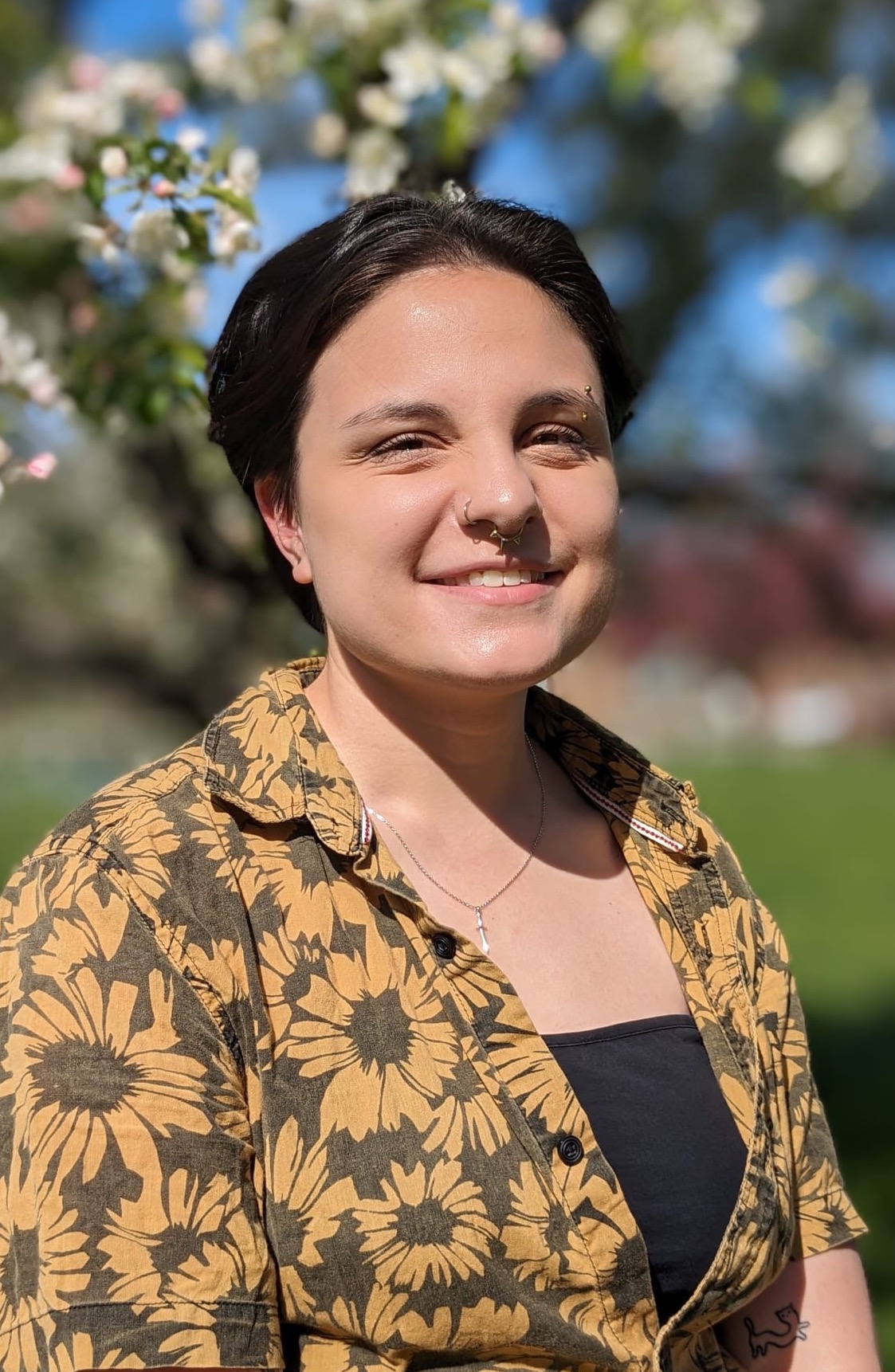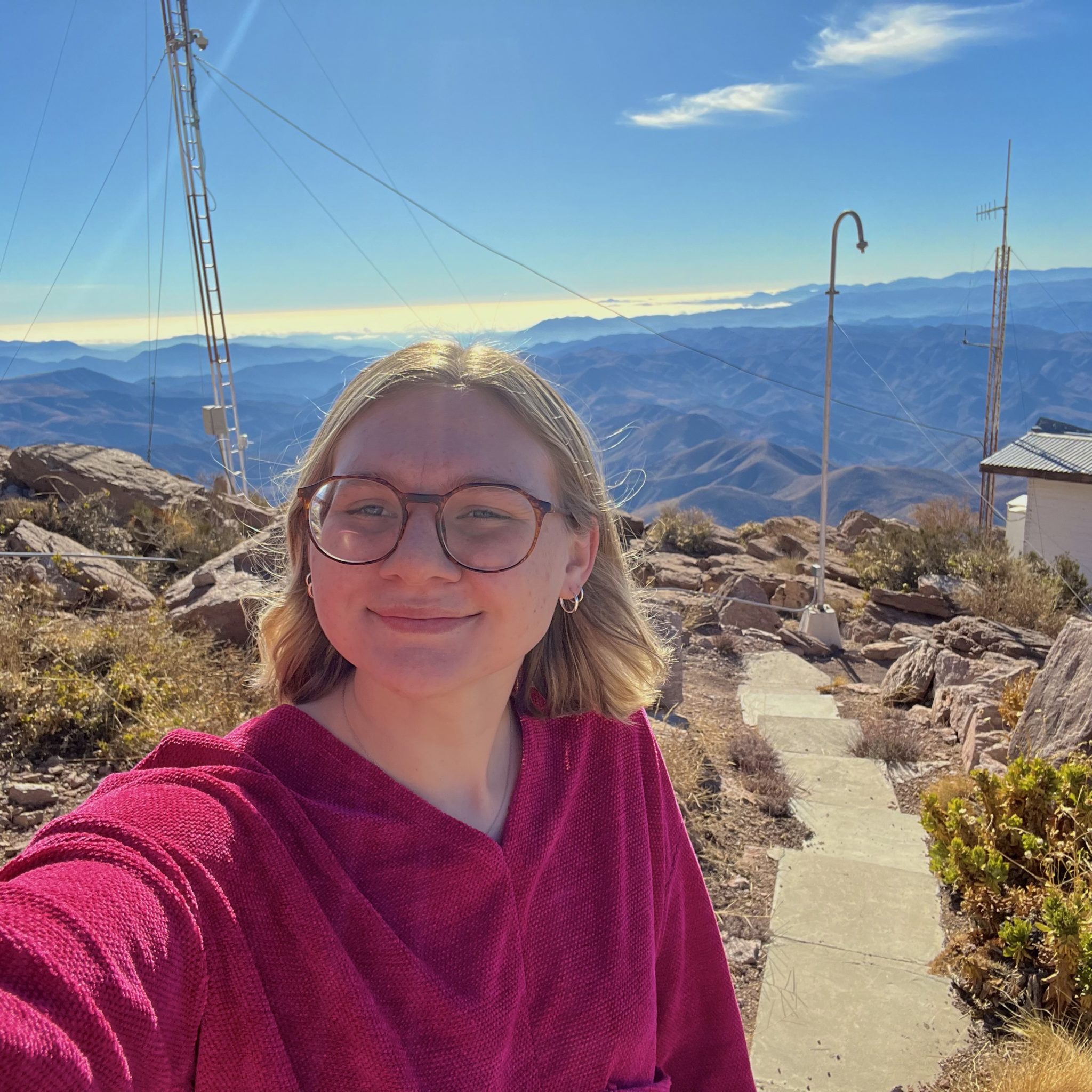Two LSU Physics Alumni Receive NSF GRFP
Jeanne Garriz and Madison LeBlanc, both 2022 LSU BS in Physics alumni, have been awarded the prestigious and highly competitive National Science Foundation Graduate Research Fellowship that supports outstanding graduate research across the country.

The purpose of the NSF GRFP is to help ensure the quality and vitality of the scientific and engineering workforce of the United States. A goal of the program is to broaden participation of the full spectrum of different talents in STEM. The five-year fellowship provides three years of financial support inclusive of an annual stipend of $37,000.
Daphne, AL native and alumni of McGill-Toolen Catholic High School in Mobile, AL, Garriz, is a PhD candidate in physics at Michigan State University’s College of Natural Science. Their current research involves working on data acquisition hardware and software for the Pacific Ocean Neutrino Experiment (P-ONE) under the guidance of MSU Associate Professor Nathan Whitehorn.
Lafayette, La. native and Ovey Comeaux High School alumna, LeBlanc is a PhD candidate in astronomy at Georgia State University in the College of Arts & Sciences. Her current research, titled “A Comprehensive View of Companions to M Dwarfs,” involves M dwarf multiplicity exploration under GSU Distinguished University Professor Todd J. Henry.
While at LSU, both Garriz and LeBlanc were involved with a variety of high-level research.
Garriz’s research at LSU focused on student ballooning programs funded by the Louisiana NASA EPSCoR Program. The projects used a student-designed payload to collect data in the upper atmosphere. “I worked on two different student-led high altitude balloon payloads over three years. These payloads were designed, built, and tested by student groups and I learned very valuable hardware and data acquisition techniques from this experience.” For their senior thesis, Garriz worked with LSU Professor Catherine Deibel to design a metal piece to block high energy reaction products from the focal plane of a split-pole spectrograph. In their freshman year, they studied alongside LSU Professor Emeritus Michael Cherry detecting terrestrial gamma flashes.
"Jeanne was an excellent undergraduate researcher in our group during their senior year and significantly expanded the scope of research we are able to undertake with the Super-Enge Spit-Pole Spectrograph,” said Deibel. “I have no doubt that Jeanne will continue to grow as a physicist and be successful. I look forward to following their career for years to come - very well deserved!”

During her tenure at LSU, LeBlanc conducted research focused on finding the orbital period of the objects using data from the Transiting Exoplanet Survey Satellite (TESS). She also studied Boyajian’s Star, KIC 8462852, with LSU Associate Professor Tabetha Boyajian. Boyajian’s Star is known to have abnormal fluctuations of light due to unknown objects orbiting it. LeBlanc’s work resulted in a Fall 2021 and Spring 2022 LSU Discover Undergraduate Research Project Grant for “Transit Model Fitting of Tabby's Star.” In addition, LeBlanc was a fellow at Georgia State University, using data from the Center for High Angular Resolution Astronomy (CHARA) to stimulate images of young stars and the accretion disks that surround them.
"Working with Madison has been an absolute pleasure," said Boyajian. "Her drive for excellence was evident throughout their undergraduate studies as well as doing research with me during her time at LSU. Winning the NSF GRFP is a testament to her hard work and exceptional abilities. I have no doubt that she will continue to achieve great things in her graduate studies and beyond."
GRFP was developed by the NSF to create a highly motivated and capable workforce dedicated to ensuring the nation’s leadership in advancing STEM-related innovations. The selected fellows are expected to become respected thought leaders and knowledge experts in their given fields. Recipients also benefit from opportunities for international research and professional development and the freedom to conduct their own research at any accredited U.S. institution of graduate education they choose.
The National Science Foundation’s Graduate Research Fellowship Program, or GRFP, is the oldest graduate fellowship of its kind. Fellows are anticipated to become life-long leaders that contribute significantly to scientific innovation and teaching, help maintain and advance the nation’s technological infrastructure and national security, as well as contribute to the economic well-being of society at large.
Since 1952, NSF has funded over 50,000 Graduate Research Fellowships out of more than 500,000 applicants. Currently, 42 fellows have gone on to become Nobel laureates, and more than 450 have become members of the National Academy of Sciences. In addition, the Graduate Research Fellowship Program has a high rate of doctorate degree completion, with more than 70 percent of students completing their doctorates within 11 years.
###
Contact:
Mimi LaValle
LSU Physics & Astronomy
225-439-5633
mlavall@lsu.edu